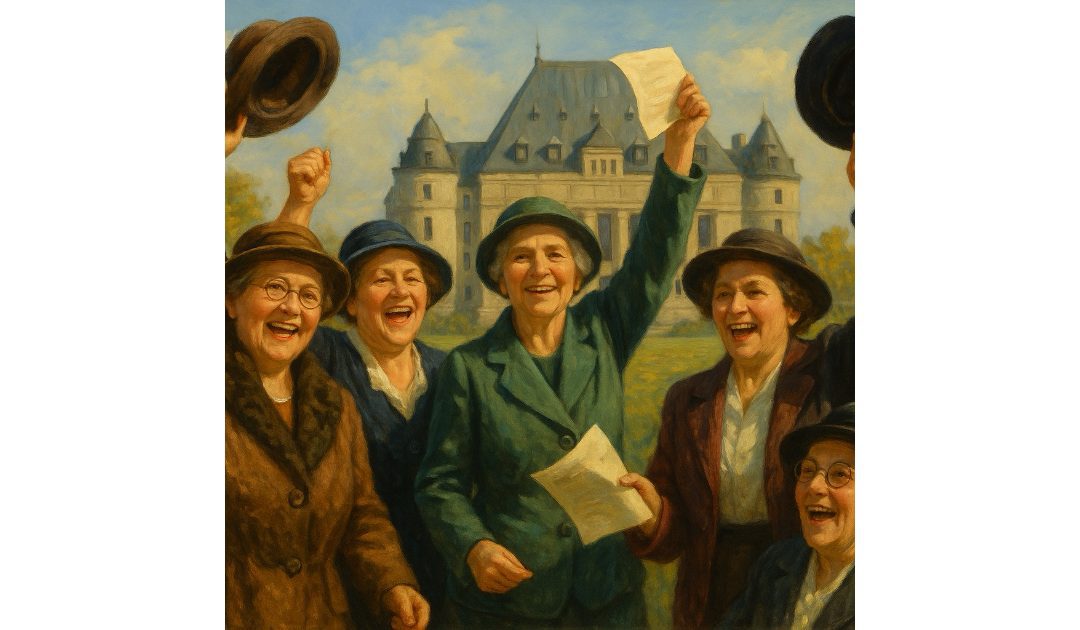One of the joys of researching my blog is that I learn quite a lot. The Famous Five to me evokes the adventure stories of my childhood, written by Enid Blyton. However, to Canadians it means something much more important.
The Famous Five refers to a group of pioneering Canadian women—Emily Murphy, Henrietta Muir Edwards, Nellie McClung, Louise McKinney, and Irene Parlby—who played a pivotal role in advancing women’s rights in Canada during the early 20th century. They are best known for their involvement in the Persons Case, a constitutional challenge that had far-reaching implications for gender equality within the British Commonwealth.
The Famous Five: A Brief Overview
These five women were social reformers, activists, and political trailblazers. Each brought unique strengths to their collective efforts:
- Emily Murphy was a magistrate and the first woman in the British Empire appointed to such a position. Her legal career exposed her to systemic gender discrimination, fuelling her activism.
- Henrietta Muir Edwards was an advocate for women’s legal rights and a founding member of the National Council of Women.
- Nellie McClung was a gifted orator, suffragist, and politician, known for her passionate campaigns for women’s voting rights.
- Louise McKinney was the first woman elected to a legislature in the British Empire, representing Alberta in 1917.
- Irene Parlby served as a cabinet minister in Alberta, championing rural women’s rights and social reforms.
Their collective determination culminated in the legal battle popularly known as the Persons Case.
The Persons Case (Edwards v. Canada, 1929)
At the heart of the Persons Case was a single, deceptively simple question: “Does the word ‘persons’ in Section 24 of the British North America Act, 1867, include female persons?”
Emily Murphy’s appointment as a magistrate had sparked controversy as lawyers challenged her authority, claiming that women were not legally considered “persons” under the British North America Act (BNA Act) of 1867. This legal ambiguity prompted Murphy and her colleagues to seek judicial clarification.
Section 24 of the British North America Act:
Section 24 of the BNA Act (now known as the Constitution Act, 1867) governs the appointment of senators in Canada. The relevant text reads:
“The Governor General shall from Time to Time, in the Queen’s Name, by Instrument under the Great Seal of Canada, summon qualified Persons to the Senate.”
The crux of the dispute lay in the interpretation of the term “persons.” At the time, legal precedent and societal norms largely restricted this term to mean “male persons,” effectively excluding women from eligibility for Senate appointments.
The Legal Battle:
On the 27th of August, 1927, the Famous Five petitioned the federal government to refer the question of eligibility of women to be senator to the Supreme Court of Canada. The court ruled against them, stating that the term “persons” did not include women, as it was not the intention of the framers of the Act in 1867.
Undeterred, they appealed to the Judicial Committee of the Privy Council in Britain, which was, at that time, Canada’s highest court of appeal. In a landmark decision on 18 October 1929, Lord Chancellor Viscount Sankey overturned the Supreme Court’s ruling, declaring that women were indeed “persons” under Section 24.
The Significance of the Decision:
The Privy Council’s judgment was not just a legal victory; it was a profound societal milestone. Lord Sankey’s statement that “the exclusion of women from all public offices is a relic of days more barbarous than ours” resonated globally. This ruling allowed women to be appointed to the Canadian Senate, and the first woman, Cairine Wilson, was appointed in 1930.
Moreover, the decision established the “living tree doctrine” of constitutional interpretation. Lord Sankey described the Constitution as “a living tree capable of growth and expansion within its natural limits.” This principle has since guided Canadian constitutional law, promoting progressive interpretations that reflect evolving societal values.
Legacy of the Famous Five:
The achievements of the Famous Five transcended their era, inspiring generations of activists and shaping Canada’s legal and cultural landscape. Their fight underscored the importance of perseverance in the pursuit of justice and equality.
In recognition of their contributions, the Famous Five were honoured with a commemorative monument on Parliament Hill in Ottawa. Additionally, in 2009, they were named Honourary Senators, symbolically rectifying the historical exclusion they had fought against.
Conclusion:
The story of the Famous Five and Section 24 of the British North America Act is a testament to the transformative power of determined advocacy. Their legacy lives on in the constitutional principles that uphold equality and in the continuing efforts to expand rights and representation for all Canadians.
The Suggested Assassin, the third book in the Sir Anthony Standen Adventures, has at its heart the theme of misogyny and Salic law, the French law which excluded the right of a woman to rule France.

